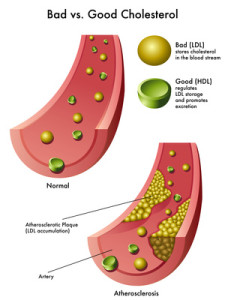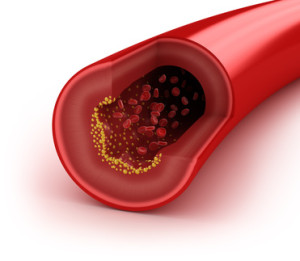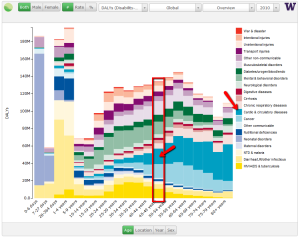Contents
Supporting Healthy Cholesterol with Amino Acids
Research reveals that a 10% LDL cholesterol reduction can be achieved with Arginine supplementation.
What you will learn
[success]
- How research showed that Arginine lowers bad (LDL) cholesterol leaving the good HDL cholesterol levels untouched
- Which simple foods are effective in achieving this effect
- How Taurine and Carnitine reduce cholesterol and heart health therefore improve your longevity
- Which foods include large amounts of Arginine
[/success]
The benefits of the amino acid Arginine and it’s metabolic product Nitric Oxide (NO) on the cardiovascular system were discovered in the 1970s and 1980s. The Nobel Price for Medicine was awarded to the team, which demonstrated these benefits in 19981. Since then, researchers have conducted hundreds (perhaps thousands) of studies to investigate the many ways Arginine influences the cardiovascular system.
In one particular study, forty-five people aged from 67 to 82 took Arginine on a daily basis.
It was conclusively established that Arginine supplementation lowered LOL (bad) cholesterol levels. The average reading of 231 mg/dl was reduced to 207 mg/dl. The control group showed no improvement in cholesterol levels in the absence of Arginine supplementation. For all participants, the amount of good cholesterol (high density lipoprotein – HDL) remained the same2.
Arginine-rich almonds and walnuts
The LOL cholesterol-lowering effects of almonds were documented in a study published in 1994 in the American Journal of Clinical Nutrition. Researchers found that almonds are rich in vitamin E, unsaturated fatty acids and Arginine. During the study, scientists found that participants that regularly ate almonds reduced bad cholesterol (low density lipoprotein – LDL) by up to 7 percent 3.
Similar observation have been confirmed by The Federal Research Centre for Nutrition in relation to walnuts: lower LDL levels were recorded among participants taking walnut oil and de-oiled walnut flour. LDL levels were reduced by the fat-free or low-fat component of walnuts4. Extremely protein rich, de-oiled walnut flour is particularly high in arginine.
Low LDL colesterol levels help to stop platelet and white blood cell clumping and maintains the elasticity of the blood vessel walls. This in turn can help stop the development of thrombosis5. These and other studies have confirmed the overall positive health benefits associated with arginine, especially for the kidneys and cardiovascular system6.
The heart muscle benefits from Taurine
Of all the amino acids, taurine is most highly concentrated in the heart muscle cells. Taurine is responsible for regulating the supply of calcium and potassium to the heart. Since these substances govern the relaxation and contraction of the heart muscles, taurine can help to prevent arrhythmias. Furthermore, taurine reduces blood pressure and lowers cholesterol by improved bile flow, plus stops the adhesion of platelets7.
Lowering high blood lipids with carnitine
Carnitine

click on the image to buy this research-based Arginine, Carnitine and Pine Bark Extract formula for better circulation and more testosterone
The vitamin-like substance carnitine can also help safeguard against the hardening of arteries by lowering cholesterol levels. Research has confirmed that people who take carnitine supplements have better vascular protection compared with individuals who don’t take the amino acid8.
Humans can produce carnitine, although it’s mainly sourced externally through meat consumption. Nutritional supplements containing carnitine are recommend as eating too much meat is unhealthy and can cause other problems9.
Conclusion
The cholesterol-lowering effect of the three amino acids Arginine, Carnitine and Taurine are demonstrated by a significant number of research studies.
This will effectively reduce the chance of suffering from cardiovascular disease, the number one killer in the Western world above the age of 45.
Related Studies:
- “http://www.nobelprize.org/nobel_prizes/medicine/laureates/1998/ignarro-lecture.html” ↩
- “Hursen, M., Regan, MC & Kirk SJ (1995) Metabolic effects of arginine in a healthy elderly population, Journal of Parenteral & Enteral Nutrition, Volume 19, (pp. 227-230).” ↩
- “Abbey, M., Noakes, M., Belling, GB & Nestel, PJ (1994) Partial replacement of saturated fatty acids with almonds or walnuts Lowers total plasma cholesterol and low-density lipoprotein cholesterol, the American Journal of Clinical Nutrition, Volume 59, (pp. 995-999).” ↩
- “Diehl, JF (2001) nuts in the diet, reports the Federal Research Centre for Nutrition, R-01-01, Karlsruhe.” ↩
- “Palloshi, A. Fragasso, G., Piatti, P., Monti, LD, Setola, E., Valsecchi, G., Galuccio, E., Chierchia, SL & Margonato, A. (2004) Effect of Oral L -arginine on Blood Pressure and Endothelial Function in Patients and Symptoms With Systemic Hypertension, Positive Exercise Tests, and Normal Coronary Arteries, The American Journal of Cardiology, Volume 93, (pp. 933-935).” ↩
- “Wu, GAB, Meininger, CJ, Knabe, DA, Baze, FWA & Rhoads, JM (2000) Arginine nutrition in development, health and disease, Current Opinion in Clinical Nutrition & Metabolic Care, Volume 3, issue 1, (pp. 59-66).” ↩
- “Chapman, RA, Suleinan, MS & Earm, YE (1993) Taurine and the heart, Cardiovascular Research, Volume 27, issue 3, (pp. 358-363).” ↩
- “Hopkins, J. (1982) Effect of carnitine on serum HDL-cholesterol: report of two cases, Medical Journal , Volume 150, issue 2, (pp. 51-54).” ↩
- “Evangeliou, A. & Vlassopoulos, D. (2003) Carnitine Metabolism and Deficit – When supplementation is Necessary, Current Pharmaceutical Biotechnology, Volume 4, issue 3, (pp. 211-219).” ↩



